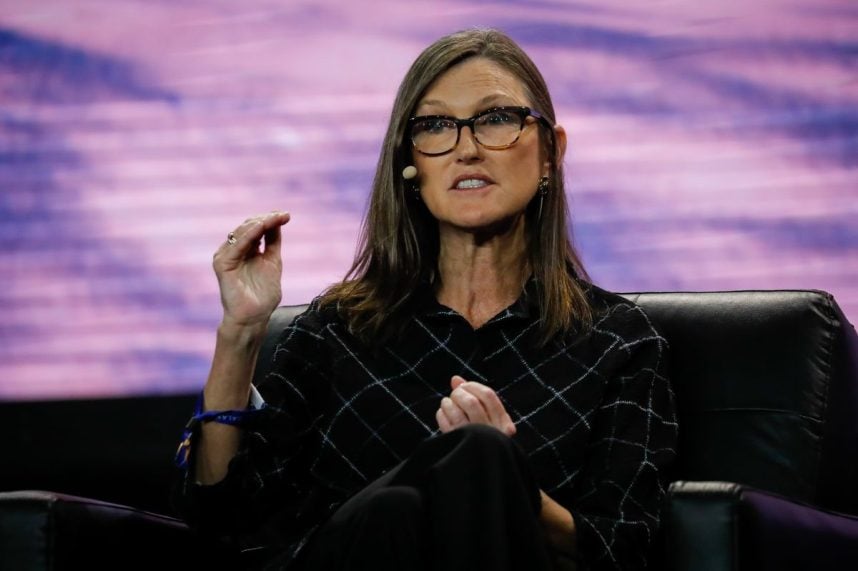Robinhood Spearheading Intersection of Markets, Sports Betting, Says ARK
Posted on: September 1, 2025, 08:00h.
Last updated on: January 6, 2026, 09:06h.
- Brokerage firm recently rolled out prediction markets on college football, NFL
- ARK Invest says Robinhood has regulatory advantages
Robinhood Markets (NASDAQ: HOOD) recently announced that will forge deeper into the sports event contracts space, telling clients it will offer NCAA and NFL prediction markets over the course of the regular season.

The news, which raised eyebrows in the sports betting industry, could be a sign of the brokerage firm flexing regulatory advantages not possessed by gaming companies. As ARK Investment Management analyst Nicholas Grous points out, Robinhood’s prediction market offerings are regulated at the federal level, meaning the company can offer those contracts to clients in all 50 states — an advantage not possessed by standard sportsbook operators.
Because the Commodity Futures Trading Commission (CFTC) regulates the new contracts, users no longer need to navigate a patchwork of state gambling laws, because Robinhood’s prediction markets function more like tradable financial contracts than sports bets,” observes Grous.
He adds that the state-by-state regulatory protocols companies such as DraftKings (NASDAQ: DKNG) contend “US has created friction for both operators and consumers of legal sports betting.” Robinhood and other prediction markets firms don’t contend with that hodgepodge of rules, streamlining their regulatory process.
Other Differences Between Robinhood, Sportsbooks
One of the long-running battle cries – one that’s drawn derision among sports betting industry observers – among companies like Kalshi is that prediction markets, even sports derivatives, aren’t comparable to traditional sports wagering.
ARK’s Grous highlights a difference in the Robinhood/DraftKings comparison. He points out that Robimhood charges a flat fee on each event contract traded whereas operators like DraftKing assess transaction costs via vigorish, or requiring a bettor to typically bet more than they can win. For example, in -110 odds, the bettor is required to lay $110 to win $100 with the extra $10 being the “vig.”
“Robinhood and DraftKings have different economic models. Robinhood charges a flat $0.02 per contract traded, with transparent fees and outcomes based on market probabilities,” notes Grous. “In contrast, DraftKings and other sportsbooks embed their margins in the odds—a ‘vig’ typically between 4–6%. Because of the embedded fee structure, bettors need to outperform the sportsbooks’ typical 52–55% win rate simply to break even.”
However, critics of prediction market operators claim the per contract fee is akin to the vig and that the former are capitalizing on regulatory loopholes to mount competitive threats to sportsbook operators. The gaming industry isn’t taking that threat lying down. Flutter Entertainment’s (NYSE: FLUT) FanDuel recently announced a partnership with CME Group (NASDAQ: CME) to offer event contracts based on economic events and financial markets, prompting speculation as to when DraftKings will join the party.
ARK Has Skin the Game
Cathie Wood’s ARK Investment Management is one of the largest Robinhood shareholders and owns the financial services stock across several of its exchange traded funds (ETFs), including its flagship ARK Innovation ETF (NYSE: ARKK).
That doesn’t mean the aforementioned comments from the firm represent a talking down of DraftKings because Wood’s firm is also a long-time, major DraftKings investor.
A trio of ARK funds are among the three largest ETF owners of Robinhood shares while three of the issuer’s products are among the 12 biggest ETF holders of DraftKings stock.
No comments yet